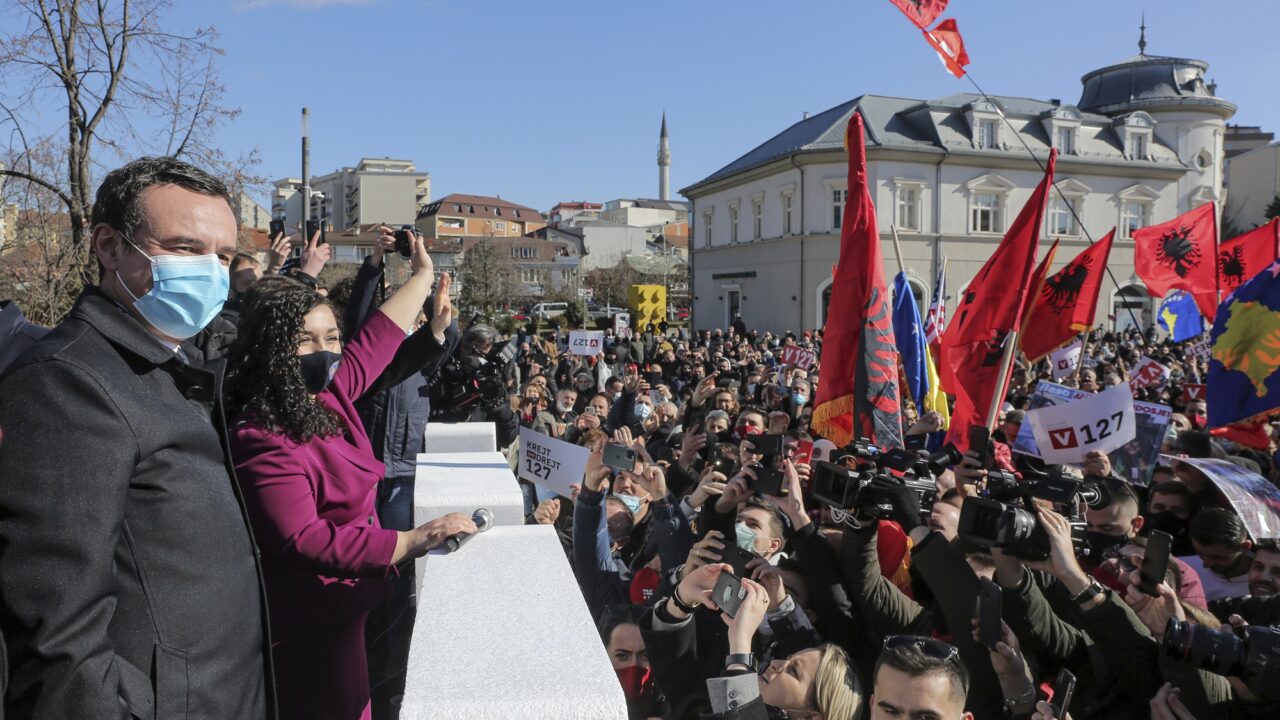Kosovo snap election: A chance for action
The results of this week’s election could be transformative for Kosovo – but the challenges facing its new leaders are daunting
Today marks 13 years since Kosovo’s declaration of independence. But this year’s anniversary differs considerably from its predecessors, as the country looks out on a transformed political landscape. The youngest European state held yet another snap election last Sunday, the sixth such poll since 2010 – only this time the results point to drastic changes unique not only for Kosovo but also within the Western Balkans. The clear winner is a left-wing party headed by a former student revolutionary leader, Albin Kurti, who is popular among urbanites and young people. Kurti’s party, Vetevendosje, formed a pre-election coalition with a centre-right list led by Vjosa Osmani, the acting president of Kosovo. Can they meet the enormous socio-economic challenges and the sky-high expectations of a population still suffering from the pandemic?
Kurti’s party is a socio-economically orientated movement, but it assembled a joint election ticket with independent politician Osmani, who entered politics as a devotee of former president Ibrahim Rugova and his political pacifism – an ideology Kurti had long criticised. But both have pledged to fight corruption, create jobs, and deliver social justice. And the win was big: for the first time ever in a Kosovo election, one party – Vetevendosje – won more than 48 per cent, trailed by the Democratic Party of Kosovo, which secured just 17 per cent of the vote. Vetevendosje left the others so far behind that it prompted major resignations among the leadership teams of the losing parties, in particular the Democratic League of Kosovo, which had been Vetevendosje’s junior coalition partner in the previous short-lived administration. Encouragingly, almost all other political parties have already conceded. They have also vowed not to obstruct the appointment of a new government – a rare sign of political maturity in a post-war Kosovo and the wider region.
The challenges are daunting. Kosovo faces enormous socio-economic challenges. To date, over 120,000 people have had covid-19 and 1,544 have died. The pandemic has exacerbated the already dire economic situation in Kosovo and has further worsened the social polarisation that has been perpetuated by unending political crises. In the last parliament, opposition parties continuously refused to back legislative initiatives to respond to the crisis. At one point, citizens ended up withdrawing pension trust money to make ends meet in the absence of cash support from the government. Kosovo remains one of the few countries in the region that has not yet started vaccinations against covid-19, and there are still no plans to get such a programme off the ground. A government that can command clear support in parliament will be much more empowered to take the steps needed to combat the pandemic.
Unemployment in Kosovo remains the highest in the region at above 30 per cent; in neighbouring North Macedonia the figure stands at 16 per cent and Albania at just under 13 per cent. In the last year, the figures ballooned such that over half of young people in Kosovo were out of work. Businesses and vulnerable groups such as pensioners have been affected badly by the pandemic and lack of state support. The new government will need to quickly draw up a strategy to ensure that businesses and vulnerable groups receive support and avoid failing further below poverty line. It is also crucial that the new government urgently invest more in the healthcare system, which is at breaking point and too often fails to provide basic services.
Kurti’s upcoming second mandate will also be dominated by foreign policy questions and regional issues. There are already calls for him to start delivering on the foreign policy front, not least the now long-running dialogue with Serbia – the three previous governments failed because of a lack of consensus on how to approach the process. The EU’s high representative Josep Borrell and members of the European Parliament have formally called on Kosovo to establish a government soon and focus on the Kosovo-Serbia dialogue.
Without a long-lasting solution for the Serb community in Kosovo, the country will remain dysfunctional and without proper Euro-Atlantic integration
However, both Kurti and Osmani have said that the dialogue will not be among their top priorities. But, as political leaders, they will not be able to ignore the fact that without a long-lasting solution for the Serb community in Kosovo the country will remain dysfunctional and without proper Euro-Atlantic integration. If they ignore the dialogue, Serbia’s authoritative leadership will gain politically. They must therefore find ways to address the dialogue alongside their numerous internal challenges.
Finally, on the broader regional level it is notable that Kosovo’s citizens were able to bring about a substantial political change. The country has a well-functioning democracy, with the elections organised and run relatively professionally. This stands in contrast to neighbouring countries, which have failed to enjoy the fruits of elections as a democratic tool to bring about change. Election processes in the Western Balkans are often little more than a tool to keep the establishment in power rather than enable change. Scepticism and low trust in democratic institutions have been at their lowest ebb in the region in recent years – Kosovo’s example could play a small part in altering this prevailing sentiment.
The European Council on Foreign Relations does not take collective positions. ECFR publications only represent the views of their individual authors.



